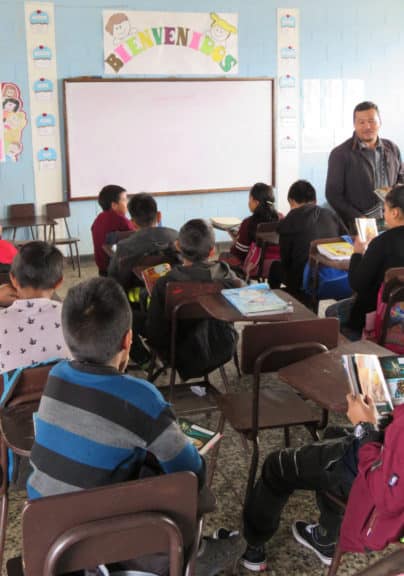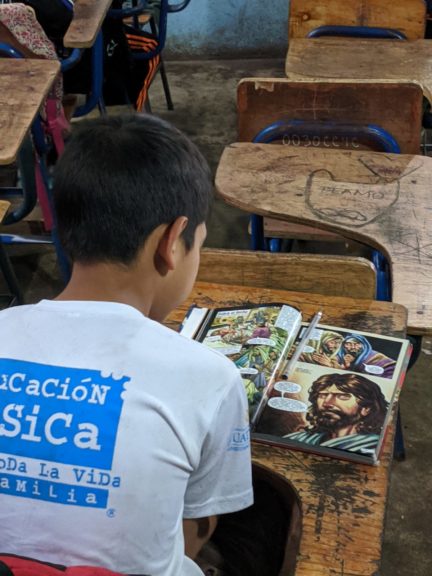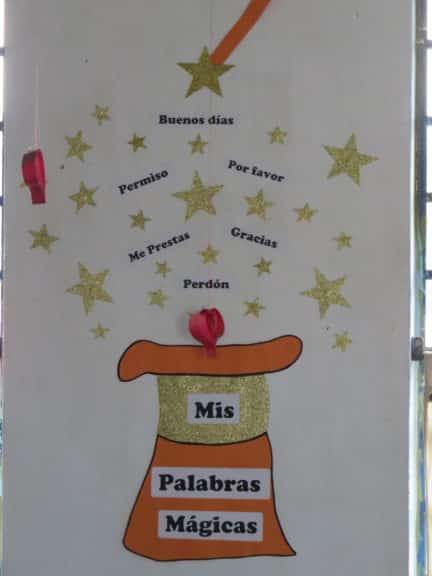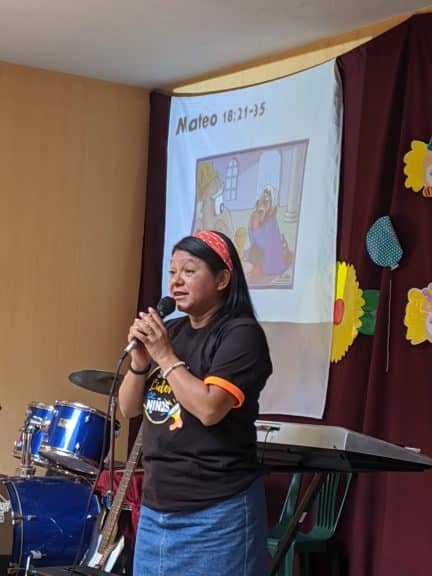When you think of a missionary, what comes to mind?
Perhaps you envision someone who travels to war-torn, impoverished nations. Or, maybe you think of someone who goes to plant churches in other parts of the world.
These are noble efforts to help make Jesus known to people who might not otherwise have an opportunity to hear about Him.
But could a missionary also be someone who simply stepped outside of the church, took a look around the community, and sought to meet the greatest needs of the people nearby?
I challenge you to think about this. Consider for a moment the opportunities you have to share the light and love of Jesus that exist just outside your door.
To help us ponder this a bit more, let’s look at some mission’s work people are carrying out in their local communities.
To get a glimpse of what local missions can look like, let’s visit Guatemala.
Consider for a moment the opportunities to share the light and love of Jesus that exist just outside your door.
(I know you’re probably wondering why we are going to Guatemala to talk about local missions, but stay with me on this.)
Here Is the Church
“Usually, when people introduce you as a missionary, people expect to see someone from another country,” said Nelson Morales, a Guatemalan missionary.
When you walk into a church in Guatemala as a visitor, you are often called a “missionary,” regardless of the type of ministry you may be doing.
Morales is native to Guatemala, but his story as a missionary is quite complex. Several years ago, Morales moved to Nashville, Georgia, where he got connected with a church community. It is actually this church that sent him back to Guatemala as a missionary.
Nelson, who is married with four children, missed his family and was ready to go back to Guatemala. He accepted the mission.

What Church Can Look Like
Now, Nelson works with Paradise Bound Ministry to bring The Action Bible New Testament to public schools in many indigenous areas of Guatemala. Using this graphic novel version of the New Testament, Morales teaches character lessons to native children.
The way he teaches, the Bible serves to teach about Christian values and promote literacy.
As a bonus, some of the Bible stories also lend themselves to vocabulary lessons. In each lesson, Jesus serves as a model for the children to help them learn important values.

When visiting the schools, it is amazing to see the importance of education in these communities. There are some desks and supplies, although they are extremely limited in some areas. Teachers are equipped with guides for various curricula they use.
On the walls, there are teaching aides, such as classroom rules, value statements, months of the year in Spanish (and sometimes even English), as well as chalkboards and whiteboards.

Students treat the materials that actually belong to them with a lot of respect. It is for this reason that Morales encourages each class he works with to instruct the children put their names on their books.
When the books become theirs, the children take extremely good care of them. He also encourages the teachers to have their children take their copies of The Action Bible New Testament home with them.
This promotes literacy—including biblical literacy—and it can also spark the interest of the children’s parents.
One of the teachers had a student whose mother wanted a copy of The Action Bible New Testament because she found it so engaging.
“That is why, for me, the books are very important because it allows them to relate to the Word of God as it is taught in the churches,” she said.
Here Is the Steeple
Nelson is not the only local missionary in Guatemala. Some churches are also acting as missionaries in their own communities.
Instead of using projects to raise funds for the church, members of the denomination go out into their communities to serve the people in their areas.
“Our pastors have always been adamant—never do anything for money,” said Marylena de Cano, a Sunday school teacher with the Assemblies of God.
The Assemblies of God churches have done many things in the community including cutting hair and shining shoes. They also have a project that helps provide Happy Meals for children.
Yes, that’s right, Happy Meals.
In Guatemala, it is a very exciting treat to have a Happy Meal, especially for children who otherwise would not be able to afford them.
Another local ministry the church is leading is a discipleship program that begins with 3-year-olds and continues through young adulthood. Some of the children who attend classes come to church with their families, and others do not.
In this way, the program serves children who might not otherwise have the opportunity to learn about God.
Upon walking into de Cano’s classroom, it is evident that she is passionate about children’s ministry.
Her enthusiasm along with her understanding of children engages young learners from the moment they walk into the classroom.
Open the Doors
Let’s take a look into de Cano’s classroom.
It’s the National Day of the Child in Guatemala. This is a special day to celebrate children, so everything is bigger and bolder than usual.

The lesson begins with the teens leading singing and dancing to worship music and all of the children are following along with the music.
The youngest children are positioned at the front of the classroom, and the older children are behind them so that all can see and participate.
“Cantaré de tu amor por siempre (I will sing of your love forever),” they sing.
Then, the lesson begins: “Children who live for God!” It is evident from the excitement and attention the children give to the lesson that many of them do seek to know and serve God.
Today’s lesson is called “God Helps Me to Forgive.”
De Cano guides the children through a memory verse and the story of the unforgiving servant from Matthew 18:21–35 before talking to the children about the importance of asking for forgiveness.
Her care and compassion for the children shines through as she explains that anger does not feel good in our hearts.
Toward the end of the lesson, the children are asked to write about a person or situation they needed to forgive.
The older children helped the children write their answers. De Cano then asked for children to come forward with prayer requests.
The Children’s Ministry Director over Guatemala, who is visiting for the Day of the Child, takes time to pray over each individual child.
And There Are God’s People
The children in de Cano’s class have shown spiritual growth as they have gone through her class.
She has been teaching for about 11 years. During this time, she has watched many children graduate out of the children’s program and move into young adulthood knowing and seeking the Lord.
“We love them,” she said of the children in the program.
Many of the children who graduate from the 3 to 12-year-old program go on to help teach the younger children in addition to continuing their own Christian education.
In this way, the children are able to live out their faith and share it with others.
“To hear them give their testimony, it is beautiful,” said de Cano.
“We love them.”
Only God can transform hearts and lives.
However, these local missionaries are doing their part to spread the word about Him to those in their communities. God is moving in mighty ways in Guatemala through people who know Him and know others in the communities they serve.
How might God use you in your community? What mission field is waiting right outside your door?
Step outside and take a look.
If you liked this article, you may also like:
- 42 Exciting Service Project Ideas Tested in the Real World
- This Is How I See The Action Bible Help Kids Love God’s Word
- Giving Kids a Heart of Compassion in a Me-Focused World
- 10 Uplifting Ways Kids Can Bless Others This Thanksgiving
- 25 Christmas Outreach Ideas You’ll Actually Want to Do with Kids

What if We’re Failing Kids at Faith Formation? (And How Not To)

What if We’re Failing Kids at Faith Formation? (And How Not To)











